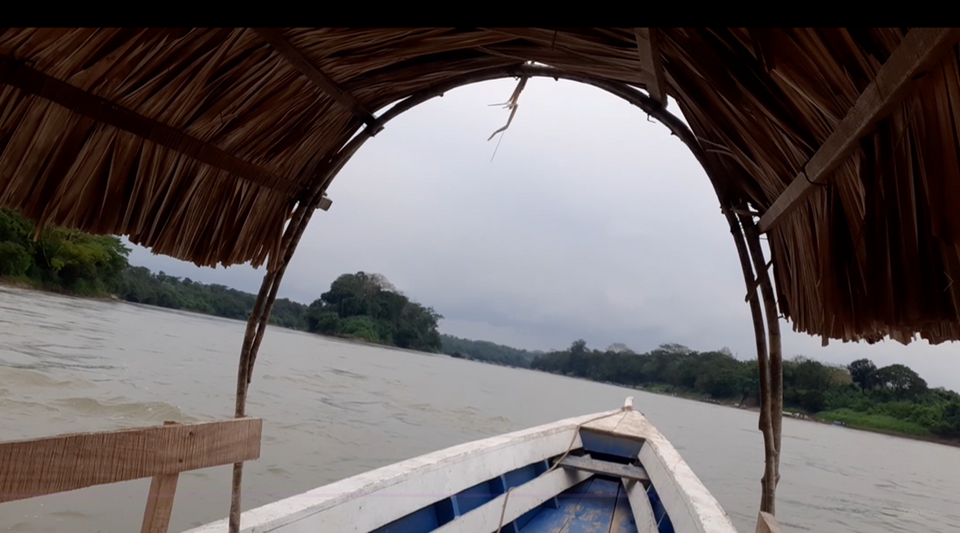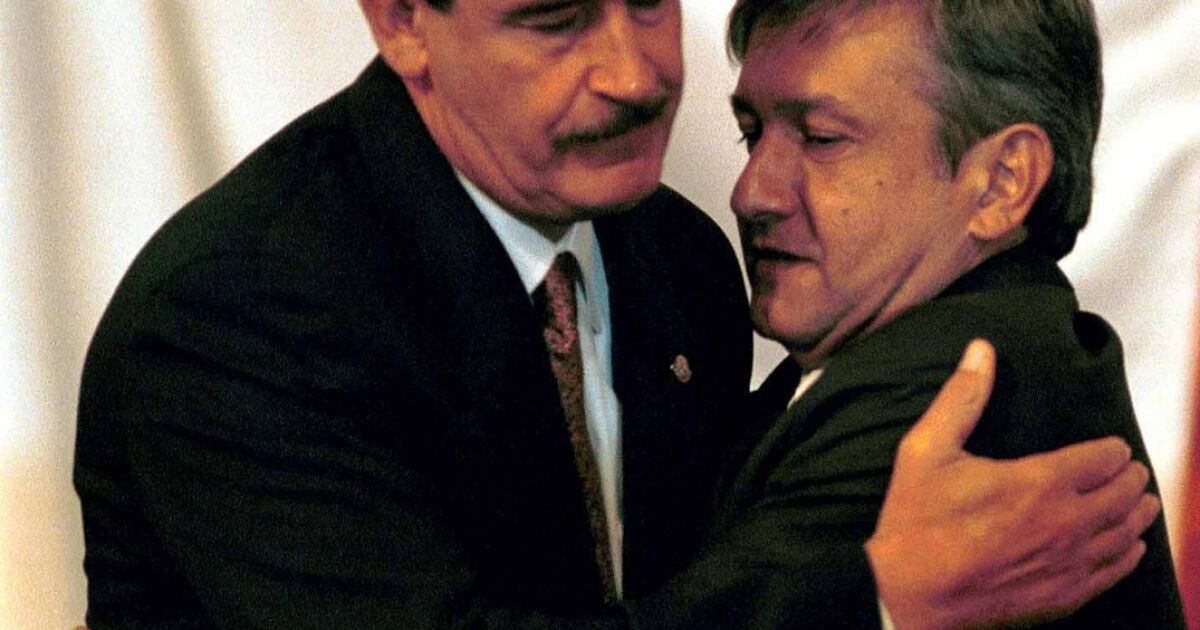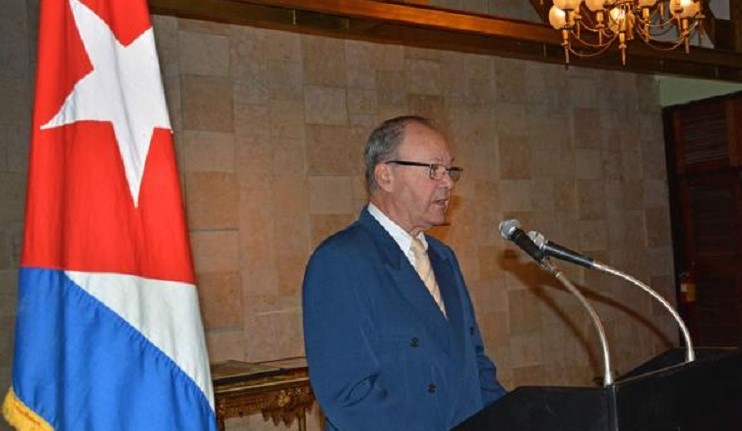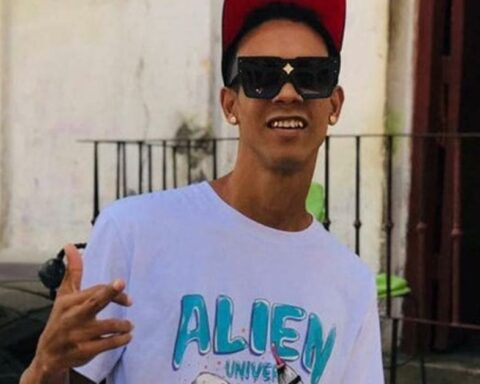Alejandro Mena Ortiz
The entrance to Mexico was incredibly calm, it was as if we were arriving at our home. There was also one of these mobsters there, I guess waiting for a payment. After a while, the guide returned with a very modern Nissan and took us to a warehouse to wait.
There I met some Nicaraguans with whom I spoke and who began to tell me about the barbarities that Ortega was doing with the elections. That if the country was screwing up, that if it was soon going to be the new Venezuela, that if they were afraid and decided to go out to try their fortune in the United States… They went with the intention of earning money for two or three years and coming back , that I don’t understand, because if they think that their country is made of firewood…
We spent a couple of hours until they came for us and took us to Palenque through an incredibly long road, where there were many burial moundswhich is how we say in Cuba to the police lying downthose who put to control the speed of drivers.
The man accelerated and I thought: “My God, we are going to kill ourselves!”. In that car we went without a seatbelt: in front of the driver, to the side two women, one sitting on top of the other, and in the back four, three Nicaraguans and me, very uncomfortable. At 180 kilometers per hour, the car hits a stone on the road and I would have killed myself, like that without asking too much.
After four hours, we arrived at Palenque, which is where we changed trucks again. They kept us parked for about an hour and twenty minutes, the seven of us squeezed together. I was desperate, to get off and because of the uncertainty, because the cartels already operate directly with us there.[[QUOTE:Estaba lloviznando y entramos allí, todo encharcado por el ir y venir de zapatos, muy sucio, muy oscuro, con muchísimos niños]]
Finally, the truck left and, suddenly, from being alone, we entered a huge, huge caravan, that I could not see neither the tip nor the tail: they were all nine-seater trucks, all loaded with migrants.
In Palenque they took us to a warehouse, which is what they call the places where they leave migrants, a three-story but very narrow house. That place was just horrible, and it disturbed me. There were many Cubans inside. It was drizzling and we went in there, all flooded by the coming and going of shoes, very dirty, very dark, with many children.
The children played with each other on very thin foam mats and the mothers were desperate. One approached us and told us: “Hey, you have to go in, you can’t stay there,” because according to what they said, the migrates and the Federal passed by constantly and I couldn’t see anyone outside. But actually everyone knows what happens there. Everything I saw in Mexico was a lot.
Luckily, the driver took us to his house, which was on the outskirts, and he had one of these empty warehouses, so we were the only ones there. The woman was very friendly, she treated us very well. She made us some fried fish and she gave us a drink. They told me: “Look, Cuban, try this fruit.” On the farm they had pigs, birds, rabbits, everything. There I ate fruits that I had never eaten in my life, that I didn’t even know existed.
We slept in a bed each, with air conditioning. And that was already beginning to feel the Mexican cold.[[QUOTE:Ellos estaban haciendo la ruta de ir a Cancún, porque de Palenque distribuyen migrantes hacia Villahermosa y hacia Cancún]]
The next day was February 14, the day of love and friendship, and there they had a celebration with streamers and tequila. They gave me to try beers from Mexico and they asked me about Cuba. I wanted to be more discreet there, but I told a few things. That man belonged to a cartel, according to other migrants, of the Zetas, who knows the things he may have done, because he had a good position within the cartel. All in all, that man was very sympathetic to the Cuban situation he was talking about: he didn’t know anything and he told me that I hope everything would happen soon, because Cuba must be a beautiful country.
That night three Cubans arrived, two girls and a boy, who were surprised because they thought I had gotten there very quickly. They were making the route to go to Cancun, because from Palenque they distribute migrants to Villahermosa and to Cancun. There they had to board these famous flights from Mexicali, from where you cross the border on foot. In other words, there is no river there, they open a small door for you, you cross and you are already in the United States.
The next day the man calls and tells his wife to accommodate, because 80 Cubans are going to the house. And I couldn’t believe it, there was plenty of room for 30! But I started organizing with her and I even helped make food for everyone, who even thought I was one of them and I had to tell them that no, I was just another Cuban.
There, because the world is as small as a handkerchief, I found a person who stood in line at Trimagen, a store in my neighborhood in Havana. The man began to talk to me, that he did, that he played colero, but that the pandemic, “you know”, and the son was in the US, so he managed to get money to go out, he with the woman. All that group, complete, the 80, went by way of the visa to Cancun. They protested a lot, because they said that they were treated like cows with the money they had paid: about 5,000, another 7,000 dollars. Each one different.
Among the 80 there was one who turned out to be Uruguayan, with the accent he had. So I asked him. This guy traveled to Cuba in 2021 and there resolved to have a Cuban identity. He did not want to explain to me how he did it, only that it cost him 11,000 dollars, and he told me that this way he could obtain the benefits that we Cubans have to stay in the United States. He had left on July 11, but not to protest, but to watch . The Uruguayan said that, but Alison and I speculated that he had some problem in his country, or he was a fugitive. He seemed like a nice person, but you never know.
That afternoon they finally took us to Villahermosa. The caravan was about eight vehicles and we were evading some controls, but the truth is that everything went wonderfully, everyone was talking: the driver, Alison and the three Cubans.
There were two Nicaraguans who were quieter, yes. The driver also thought that Cuba was the pearl of the Caribbean, but one of the girls told him that she was from Las Tunas, where she worked as a teacher, and that she did not give him the money to feed her son. The driver said: “Well, but if they live on at least one island, they must have fish, they must have fish.” I laughed.
We told him that there was a dictatorship in Cuba, and he said that he had lived hard times in Mexico, but he had never had to worry about what he was going to eat tomorrow.
I left that car quite depressed, after remembering so many things about my country, but I arrived in Villahermosa at a warehouse and since then I haven’t seen any more Cubans. That was a very large and very nice house, very modern, in which I spent four days with 50 or 60 Hondurans. Every morning, the managers brought us food and we distributed the housework to each other: some cleaned, others cooked, others tidied up… The only thing we couldn’t do was be in the patio, in case they saw us.[[QUOTE:El chofer decía: “Bueno, pero si viven en una isla por lo menos, peces deben tener, tienen que tener pescado”. Me eché a reír]]
There, in one of the rooms where I had to sleep, we had some of these mats that have a blue lining, like a swimming pool, with a quilt, and in each room, for example, in mine we slept 12 or 13 people, the men below and the women above, separated.
I thought there, since there was no Cuban, who was I going to talk to, but it was very nice. “Look, a Cuban,” many said, because they had never seen a Cuban, in fact, I think none. Then they began to ask me things and we talked and we had a lot of affinity. That team arrived at the border together and we helped each other a lot, all the time.
I made a lot of friends with Angel. He was 21 years old and had two small children, that’s why he felt identified with me, because I also have two. He told me that he was from northern Honduras, a large area of San Pedro Sula and its surrounding towns, where a lot of gangs, MS-13 and Barrio 18 operate. Ángel got together with bad people and ended up being a hit man. He made it clear to me that he did not kill, that he was a driver.
Then he told me that he had to lead the hitmen to kill people and once they had to kidnap one on the orders of his brother, apparently because of a drug problem. The brother paid about 10,000 dollars not only to be killed, but to be tortured. He wanted to be hung in one place and skinned alive. When he saw that, he couldn’t stand it and had to go vomit.[[QUOTE:Entonces empezaron a preguntarme cosas y conversamos y tuvimos mucha afinidad. Ese equipo llegamos juntos a la frontera y nos ayudamos muchísimo unos a otros, todo el tiempo]]
He saw horrible things, one of the other rival gang had problems with him and in the end he ended up talking to his hitmen friends to go kill all those who were threatening him. So he did, finally, he did end up shooting a gun and killing, killing people. And for that reason he left. He first hid himself and, after a month, he left.
Ángel has a brother who lives in California who was helping him get out of that movie environment. As much as they tell me, I can’t imagine something like that in real life.
The thing about the gangs in Honduras is terrible. I heard horrible things about that country, like if you wear a specific shoe worn by the gang 18 without being theirs they will shoot you, or that you can’t pass with tinted car windows… Alison, the girl who travels With me, she is 17 years old and has lived there all her life, but someone who was involved in a gang fell in love with her and made her life a yogurt, as we say in Cuba. He chased her, tried to rape her… Then she told her father, who has lived in the US for 13 years: “Daddy, I need you to get me out of here, because they are going to rape me.” And he, of course, took money from under the ground.
morning
To Mexico City, a 17-hour trip, standing on a bus
________________________
Collaborate with our work:
The team of 14ymedio is committed to doing serious journalism that reflects the reality of deep Cuba. Thank you for joining us on this long road. We invite you to continue supporting us, but this time becoming a member of our journal. Together we can continue transforming journalism in Cuba.








